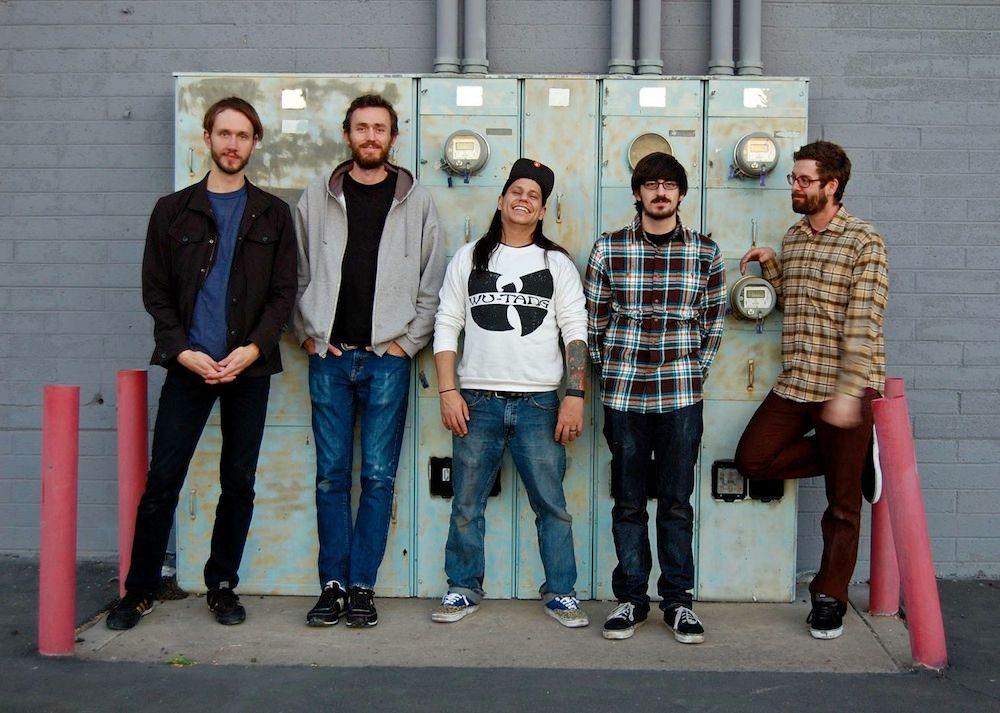
All images courtesy of Sean Bonnette

I’ve always been very drawn to Punk Rock. I often times will declare that it’s my favorite genre, but then I realize that it’s not altogether that simple. What I do know is this: I love Punk Rock and love all of the sub-genres that it has spawned. Well, most of them, at least. Folk Punk is one of those genres, and even then, it’s not all that simple to define. When it comes to a band like AJJ, it’s not so much about the genre as it is the overarching message and spirit behind the words and the music.
I first became familiar with AJJ some years back when my friend Joe showed me their music. I honestly cant recall which song, or what album he showed me first, but I do remember instantly loving the unique and rambunctious blend of Punk and Folk. Over time I hung in there with AJJ, and as they grew, I did too. Their music and message have always been meaningful to me, and in times like we find ourselves in now (the ever raging dumpster fire), I think a band that consistently challenges the norm and attempts to break down barriers is exactly what the doctor ordered if you’re into that sort of thing, which I am.
Today, I’ve got Sean Bonnette “in the house” and it’s a good one. We talk about the beginning, the middle, and the end. What more specifics? Ok. We talk about music, more specifically, Sean’s music and we touch on what it means to be a “punk,” how the band has been aping Violent Femmes since 2004, and even a touch on current affairs. Just a touch. Sean is a really cool guy and I enjoyed having the opportunity to speak with him. Also, they’ve got a new album out. It’s called Good Luck Everybody. You can grab it here. Dig in!
Andrew:
Sean, thank you so much for taking the time to talk to us! Tell us about your back story. How did you start playing music? What was your musical gateway sort of speak?
Sean:
My mom raised me to love music and to love singing, in particular. She was 21 in 1985 when she had me, and her musical taste was very eclectic, with lots of R&B, Funk, Alternative, and Punk. I was a pretty mediocre bass player from the age of 15, but things really clicked for me when I wrote my first song at 16 or 17. The song was terrible but it felt really good to finish something and call it mine.
Andrew:
AJJ was formed in 2004, right? How did the band get its start?
Sean:
I lucked out and got a job at my favorite coffee shop in Phoenix, The Willow House (R.I.P.). Ben was one of my coworkers, and I thought he was just the coolest! I still do, most of the time. One of the perks of the job was free reign over the booking calendar, so I promptly booked a gig without really knowing how to book a gig. At this point, I had songs but no real musical acumen. I invited some friends to “sit-in” with me, not really knowing how to collaborate with people musically. It was mostly a train wreck, but I clicked with Ben and Justin White, who played drums in the band for the first year. Ben, already an accomplished bass guitarist, had recently acquired an upright bass from his dad, so he used the band as an opportunity to learn on the job.
Andrew;
AJJ, which stands for Andrew Jackson Jihad is an awesome and interesting name for a band! Where did the name come from?
Sean:
Ben and I, goofing off at work, discussing Andrew Jackson: the first Pro Wrestler President. We ditched that name when it started to seem like those bad times were coming back.
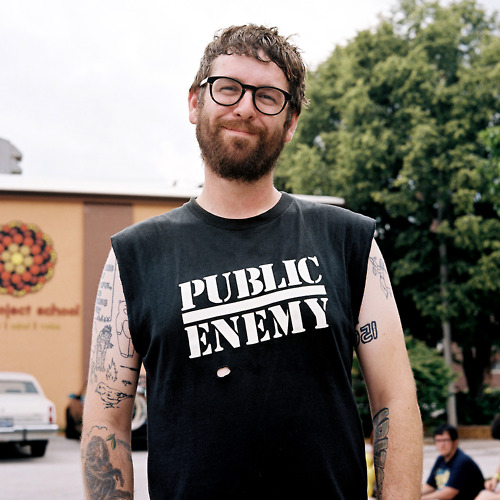
Andrew:
How did the members of the band all meet? What led to you playing music together?
Sean:
Ben and I met working together at Willow House. Preston was a regular there who would order a 16 oz. Mexicana blend and get free refills all night. Owen was in a mind-blowingly great band from Phoenix called Asleep in the Sea with whom we would play shows, and we became friends with Mark in Florida at The Fest even though we all lived in Phoenix at the time.
Andrew:
AJJ is known for its ferocious blend of Folk and Punk Rock. How did you develop your signature sound?
Sean:
Mostly by aping what the Violent Femmes and Frank Black were already doing, to be completely honest! These days we go for a lot of different sounds because we can, but back then we were limited to what we had: an acoustic guitar and an upright bass.
Andrew:
Your lyrics cover some pretty weighty topics, which I happen to love. They’re raw and real. Themes of shyness, humanity, religion, addiction, existentialism, and politics are all covered thematically in your work. Do you write from a place of personal experience? What is your inspiration?
Sean:
I’m a pretty emotional guy. If I’m not writing from a place of personal experience, then I’m usually writing from a place of emotional resonance. I’ve also written several songs that are just paraphrases of movie plots (Golden Eagle, Inner City Basehead History Teacher), but those probably also fall in the “emotional resonance” camp.
Andrew:
Kind of piggybacking onto my last question, I discovered your band when I was in my 20’s. Back then, I found your music and lyrics to be so relatable (it still is, just for different reasons now). I suspect many of your fans have had that same experience. Is it your intent to connect with your audience on a deeper level? Or does it just come with the territory?
Sean:
It really is and it isn’t. If I were to write a song with the intention of connecting with others before connecting it to what I’m feeling emotionally, I don’t think it would work. I believe the songs connect with others because I am writing them for myself as therapy. When people connect with them, it makes me feel warm and fuzzy and not alone, and I love it!
Andrew:
Your first proper album was Candy Cigarettes & Cap Guns, which came out in 2005. How do you feel you’ve grown since your early work? Do you still feel a connection to those older songs in the way that you do your newer work?
Sean:
To me, that album belongs to a different band. It probably would have been smart to change our name between that album and People Who Can Eat People. I still feel a connection to them, but it’s a cringey connection, like when you read your diary from 16 years ago. It’s like, “awww little buddy, hang in there!“
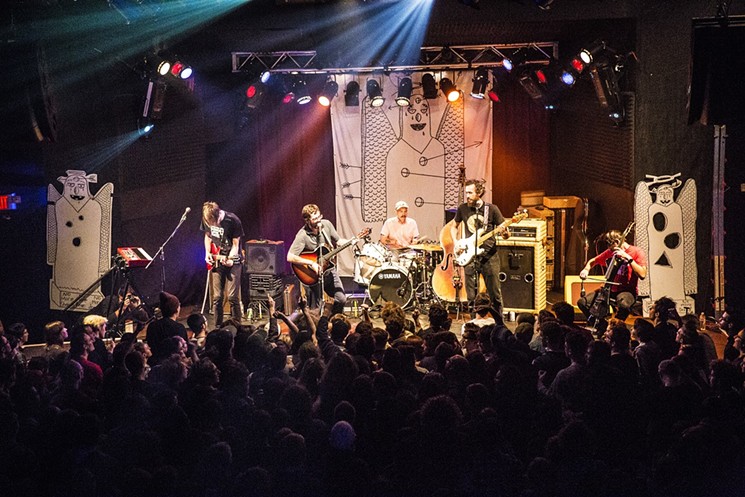
Andrew:
I am very excited to say that you put out a new album this year called Good Luck Everybody. This is your first new, full-length album in four years! The last being The Bible 2. What can you tell us about Good Luck Everybody? Where were you at while writing it? Is the title at all related to where we find ourselves in the world today? Seems pretty fitting, doesn’t it?
Sean:
Good Luck Everybody was written after a long period of trying to get a handle on post-2016 America. I was searching to find humor in a country where humor has been made obsolete. I wanted to write songs about beauty and truth in a year where ugliness and lies prevailed. It was impossible to do without addressing the elephant, so I relented and wrote instead about the anger and the ugliness and the void of hope, hoping to purge it so I could get on with beauty and truth. The title is completely related to the world today. I wish everyone the best of luck, except of course for all the nazis and earth-destroyers fucking holes into our country and planet. It makes me sad that people are calling the album “prescient” because it shows that all you need to predict the future right now is pessimism.
Andrew:
Shifting gears a little bit, you’ve been in “the business” for a while now. What do you think could change for the better, for both the fans and the artists?
Sean:
I would love for the streaming services to pay artists fairly and keep their opinions out of the creative process. I would also like to see more direct fan-to-artist relationships, although that doesn’t really help out up-and-coming artists who are still building their audience.
Most of all, however, I would love for the US Government to stop shitting the bed when it comes to addressing the COVID-19 pandemic. Venues are going belly up, tours are getting postponed further and further into an uncertain future, and the American passport is now worthless. Money is fake. If they can print off trillions of dollars for corporations, they can obviously bail out the little people, they just don’t want to, evil pricks.
Andrew:
A lot of people try to define what it means to be “Punk.” I’ve always felt that “Punk” was more of a mentality than a genre per se. I think a Jazz or Folk artist can be as “Punk” as someone who plays “traditional” guitar music. What are your feelings about that? What are your thoughts on the idea of genres in general?
Sean:
I couldn’t agree with you more. The spirit of Punk is infinitely more interesting than the sound of Punk. To me, the generally agreed-upon “sound of Punk” is boring. As a songwriter, I like to write in various genres as a way for me to not have to care about what genre AJJ falls in.
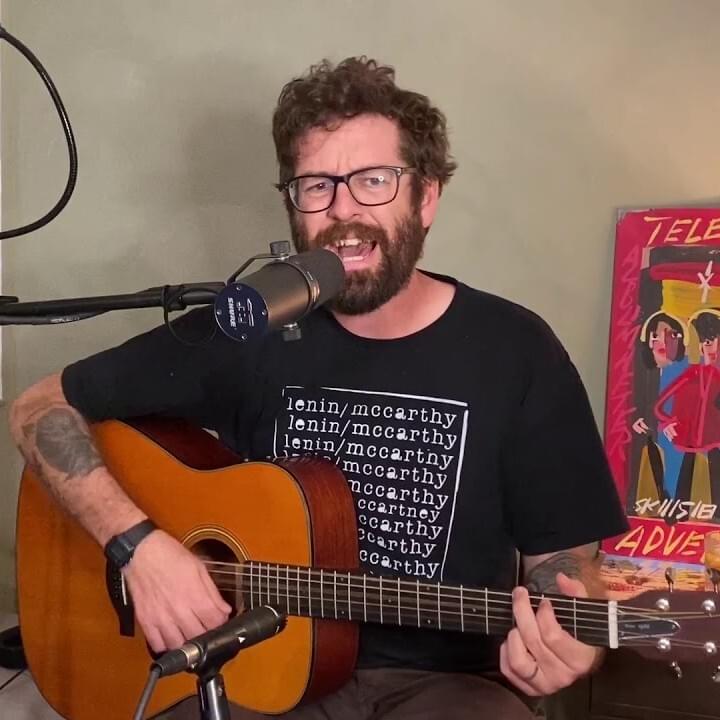
Andrew:
What are some albums that mean the most to you, and why?
Sean:
Portishead’s NYC Live album and The Stooges Raw Power (rough mixes) were two albums I bought on a family trip back in 1999 or so. My cousin Donny narc’d on me when he saw a Tool CD in my bag and got my whole haul taken away. Months later when I rescued the CDs from their hiding place in my grandparent’s room, NYC Live and Raw Power were the only ones worth a shit.
Andrew;
After all these years as a band, looking back, what are some of your fondest memories?
Sean:
The 2008 Asian Man Records Making Punk Fun Again Tour was an incredible summer camp. Recording Christmas Island with John Congleton. Spending two months in a van with Kimya Dawson. Making music with my best friends.
Andrew:
Do you collect vinyl? Tapes? CDs? Or are you all digital now? Where do you like to shop for music?
Sean:
I collect it all, but I especially love CDs. They’re cheap and thriftable, and they were the primary medium when I was a teen. Jesus, I spent thousands on compact discs back then. Now you can find great shit 5 for a dollar. I buy most of my music at thrift stores and my favorite place to buy records is Wooden Tooth in Tucson.
Andrew;
Once COVID-19 calms down (if it ever calms down), what’s next for AJJ?
Sean:
Fingers crossed, we get to tour again one of these days. Until then, I’m live streaming solo 3 nights a week with the archives going up on YouTube, recording lots of stuff from home and our rehearsal space for the next release, and washing our hands a lot.
Andrew:
Last question. Are there any bands out there that you think are carrying the torch? What advice do you have for young musicians trying to get their start?
Sean:
I couldn’t give any better advice than Alan Bishop on that matter – “Lose the fear, get the confidence. Be a leader, not a follower. Forget about “thinking outside the box,” crush and completely destroy the box.”
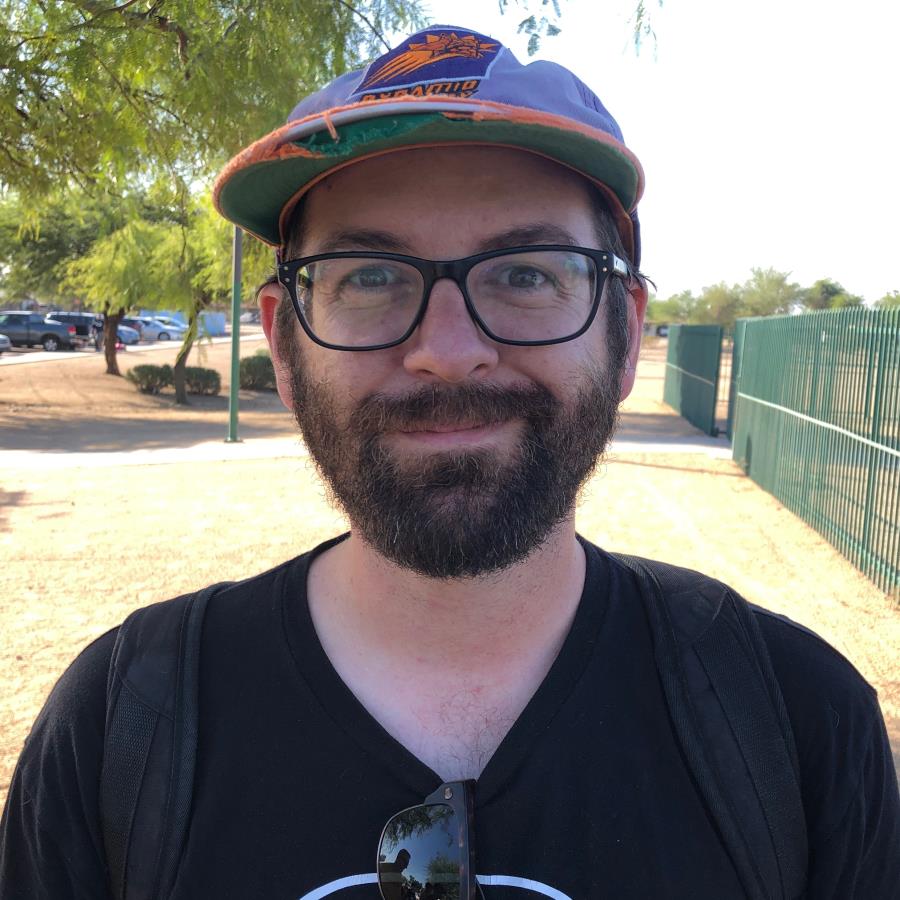
Dig this interview? Check out the full catalog of Vinyl Writer Interviews, by Andrew Daly, here: www.vinylwritermusic.com/interviews
